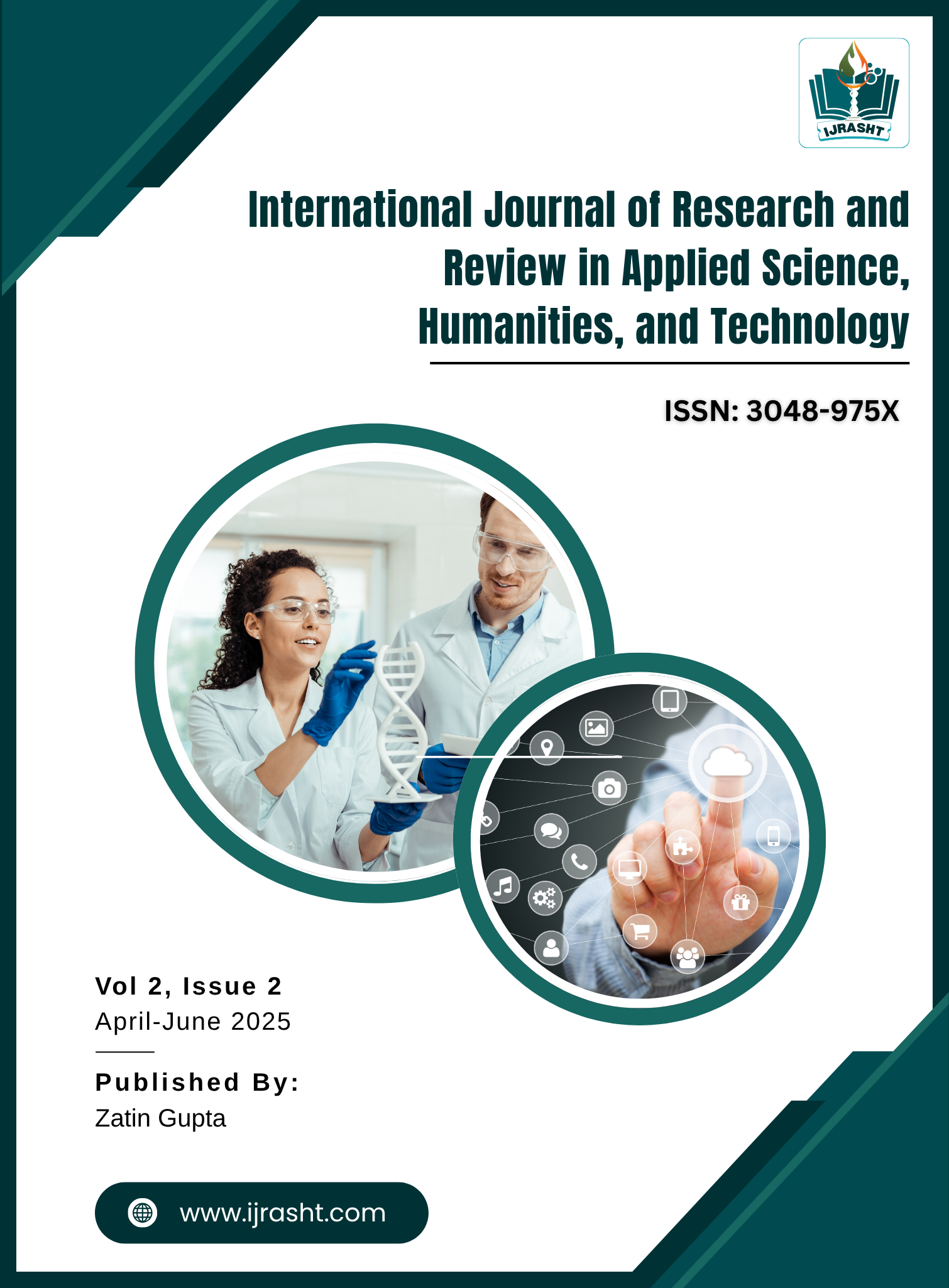Enhancing Sustainability, Climate Resilience, and Resource Efficiency with IoT-Based Precision Agriculture
DOI:
https://doi.org/10.71143/7db36796Keywords:
Artificial Intelligence, IoT, Precision Farming, Climate Resilience, Smart Agriculture, Sustainable Farming, Water Conservation, Machine Learning, Crop Monitoring.Abstract
Sustainable agriculture is increasingly challenged by climate change, resource depletion, and environmental degradation, necessitating innovative technological solutions. The combination of AI and IoT with precision farming provides an innovative strategy. This study explores the role of AI-driven predictive analytics and IoT-enabled RTM in addressing key agricultural challenges, including water scarcity, soil degradation, and pest infestations. The research methodology involved IoT sensor deployment for environmental monitoring, AI-based machine learning models for irrigation and crop health prediction, and a case study analysis of AI-IoT adoption in different agricultural settings. The information gathered show that AI-IoT technologies greatly improve water efficiency, lower pesticide usage, and improve crop yields. Specifically, smart irrigation systems reduced water consumption by 45%, AI-powered pest detection minimized pesticide application by 30%, and AI-optimized fertilization led to a 22% increase in crop productivity. Additionally, soil health improved by 35%, demonstrating the long-term sustainability benefits of AI-IoT adoption. Despite these advantages, barriers to implementation persist, including high costs specifically initial, rural connectivity issues, and the need for farmer training. Addressing these challenges requires financial support, infrastructure development, along with educational initiatives to encourage the widespread adoption of AI-IoT agricultural technologies. Future research should explore AI-driven autonomous farming, blockchain-integrated supply chains, and scalable IoT solutions for smallholder farmers. The study concludes that AI and IoT play a pivotal role in transforming modern agriculture, offering sustainable, data-driven solutions to enhance food security, reduce environmental impact, and build climate-resilient farming systems.
Downloads

Downloads
Published
Issue
Section
License
Copyright (c) 2025 International Journal of Research and Review in Applied Science, Humanities, and Technology

This work is licensed under a Creative Commons Attribution-NonCommercial 4.0 International License.









